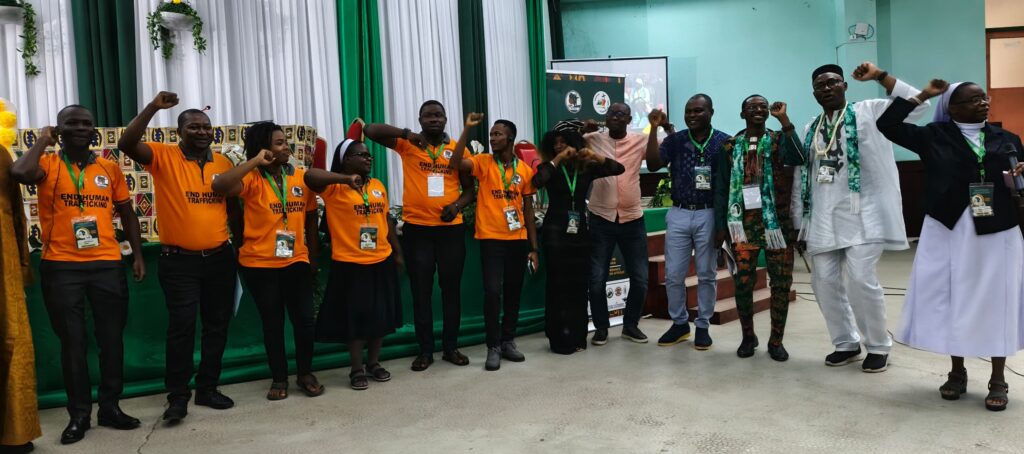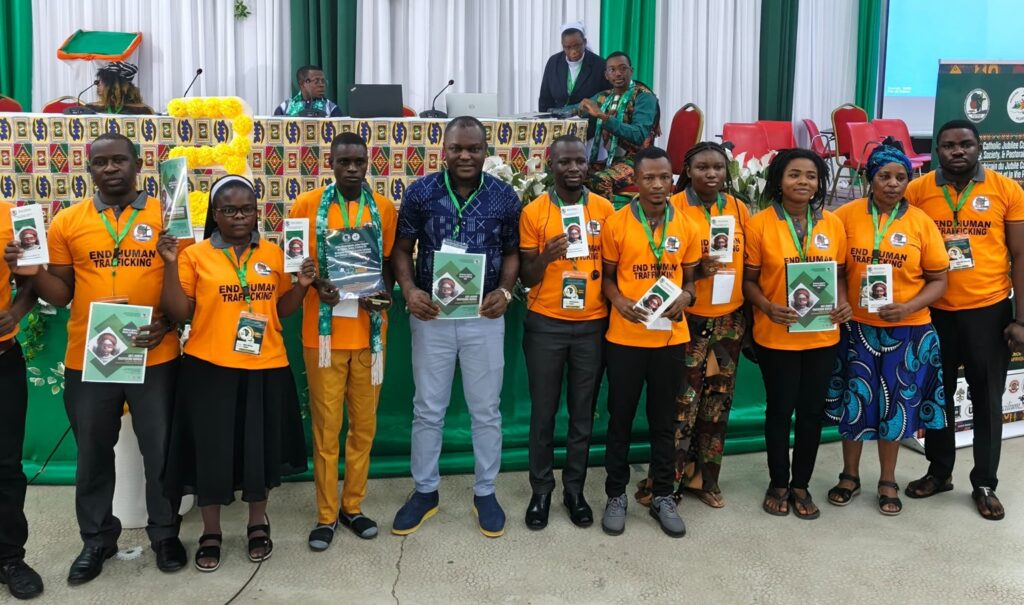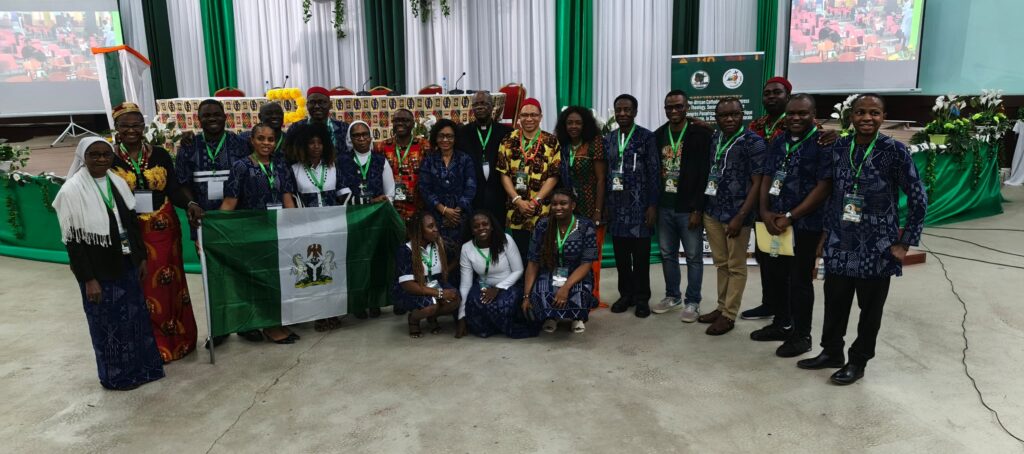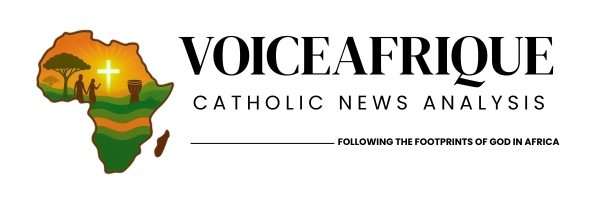
From Abidjan to South Sudan and Nigeria to Zambia, youth leaders, survivors, and the Church unite to confront modern slavery and build a future of faith, dignity, and transformation.
A Congress of Resolve in Abidjan
The humid air of Abidjan could not dampen the electric atmosphere inside the Catholic University auditorium as the III PACTPAN Jubilee Congress gathered youth leaders, clergy, and lay faithful from across Africa and beyond. The theme, “How African Youths are Witnessing to their Faith”, was more than a slogan; it was a call to action. “We are creating a new wind of awareness… not only reimagining innovative ways to tap the potential of African youth, but creating a path to reconstruction, building capacity, and transformation that will raise the Black pride,” declared one organiser. For four days, faith and activism intertwined. Delegates discussed how education, cultural pride, and community engagement can break the chains of modern slavery. The mission was clear: equip young Catholics to lead the fight against exploitation.
The Human Trafficking Awareness 2025

Central to the Congress were the Human Trafficking Awareness Programmes, coordinated by Sister Nkole Mirriam O.P. and active in nations including Ethiopia, Senegal, Tanzania, Nigeria, Namibia, Egypt, Cameroon, Mozambique, Sierra Leone and Zambia.
The programme uses schools, universities, churches, markets, and media to spread prevention messages. A key moment each year is the February 8 commemoration of St. Josephine Bakhita, patron saint of trafficking survivors, under the theme “Restoring Hope in Africa: A Jubilee Call to End Human Trafficking”.
Practical initiatives include anti-trafficking clubs in Kenya, Zambia, and Ghana; regional competitions to promote advocacy; and training for leaders to identify and respond to trafficking. Prayer days and even national anthems dedicated to the cause reinforce the spiritual dimension.
“This is not a one-off campaign,” Sister Miriam said. “It is a continental movement rooted in faith, culture, and community.”
From Prayer to Action in Côte d’Ivoire
Lucien Djodssounoukoun, President of the Diocese of Grand-Bassam’s Youth Body and Vice President of the National Youth Committee, shared how Ivorian youth organise themselves through movements of action, prayer groups, and service.
“It’s young people that move the Church because the youth have the numbers,” he said. Yet he warned that social instability, substance abuse, misuse of social media, and even tensions within the Church can weaken engagement. His message was one of persistence: challenges must be met with creativity and unity.
A Call for the Four Ps
From South Sudan, Giningakpio Justin Dapu, a human rights activist trained in peace and conflict resolution, offered a structured approach. “Human trafficking is not just a crime,” he said, “it is a grave violation of human rights. The victims are real people with their own stories, hopes, and dreams that have been stolen.”
He identified poverty, lack of education, political instability, and demand for cheap labour or sex as root causes. He proposed the “4-Ps” as solutions — Prevention, Protection, Prosecution, and Partnership. According to him, “We must recognise the signs, support local initiatives, and advocate for stronger laws.”
Building Bridges Beyond Borders

From Nigeria, Martina Akhir presented the Building Bridges Initiative projects, aiming to prepare youth to spread the gospel, embrace inclusiveness, and develop talents across Africa. Retreats for spiritual healing are paired with activities that nourish the body. They had also organised a choral competition, debate, quiz and an empowerment talk. “When we bring people together across borders,” she said, “we strengthen the entire Church.”
The Road Through Agadez: A Survivor’s Testimony
Perhaps the most sobering moment came when Benjamin Edomwonyin, a mechanic from Edo State, Nigeria, told his story. Lured with promises of a job, he was trafficked through Kano, Agadez to Libya, sold, resold, and imprisoned alongside people from across West Africa.
A failed escape attempt left one captive dead. Benjamin himself was stabbed and left in pain for months before being sold again. Freedom came only when a woman bought his release and gave him money to return home. “It is an experience I would never pray to have again,” he said. His warning to youth was clear: “Avoid those who promise a false paradise. Engage in meaningful ventures in your own country.”
From Awareness to Transformation
The Congress affirmed that ending trafficking requires more than information; it needs transformation. By blending education, faith mobilisation, cultural pride, and grassroots engagement, young Catholics are creating a holistic model for resistance.
“This is about restoring hope, not only ending exploitation,” one delegate concluded.
The Path Ahead
As the session concluded, delegates pledged to carry the mission home. The fight will require advocacy, survivor support, prevention programmes, and above all, unity.
Lucien’s words lingered: “If we walk together, we can transform obstacles into opportunities.”

